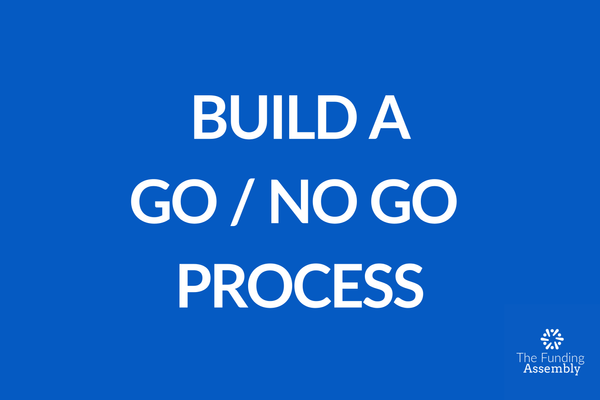Navigating the sale of a small or medium-sized enterprise (SME) can be one of the most challenging transitions a business owner faces. While the focus often centers on financial aspects, there's a critical element that can make or break the success of your sale: your employees. Research shows that companies with high employee retention during transitions achieve 2.5 times higher valuations than those experiencing significant turnover.
The reality is simple—your team represents not just operational capability, but also institutional knowledge, customer relationships, and future growth potential. Whether you're considering a sale now or planning for the future, understanding how to keep your key personnel engaged is crucial.
This comprehensive guide explores proven strategies to maintain workforce stability during a business sale, addressing common concerns and offering practical solutions that benefit both employees and stakeholders.
Common Employee Concerns During a Sale
During a sale, employees often face concerns that affect their morale and engagement. The most common issues include:
- Job Security: Employees worry about potential layoffs following a sale. This uncertainty can decrease productivity and motivation.
- Compensation Changes: Staff may fear salary or benefit reductions under new ownership, especially if the buyer appears cost-focused.
- Company Culture: Employees often feel deeply connected to their workplace culture and values. A new owner may bring changes to the work environment and established relationships.
- Career Development: Uncertainty about future career prospects within the company can lead to disengagement.
Addressing these concerns proactively helps maintain morale during transition. When business owners acknowledge fears and provide clear information about the future, they foster security and stability.
Strategies for Employee Retention
To effectively retain employees during an SME sale, several strategies can be employed:
1. Open and Transparent Communication
Clear communication is vital during a business sale. Early, transparent discussions help manage expectations and reduce speculation. Sellers should explain their reasons for selling, outline potential benefits, and provide a timeline for changes. Regular updates build trust and ease anxiety. Creating an environment where employees feel comfortable asking questions is essential. A designated contact person for inquiries enhances this communication channel.
2. Financial Incentives
Financial incentives effectively encourage employee retention during transitions. Retention bonuses motivate key staff to stay, while contractual agreements can secure employment terms post-sale. Performance-based incentives align employees' interests with the company's success. Linking bonuses to company performance helps employees feel invested in the sale's outcome, enhancing their commitment during transition.
3. Involvement in the Transition Process
Including employees in the transition process boosts their sense of ownership and engagement. Sellers should seek employee input on operational changes and welcome feedback. Regular updates reinforce employees' roles in the company's future. Encouraging their ideas for the transition enhances their agency in shaping the business's new direction.
4. Preserving Company Culture
Maintaining core values and work environment is crucial for employee morale. Sellers should seek buyers who align with the existing culture, reassuring employees that their work environment will remain stable. Leadership continuity helps preserve established practices and relationships. When the existing leadership team stays, employees feel more secure about the company's direction.
5. Ensuring Buyer Commitment to Retention
Including employment agreements in sale terms protects key staff through transition. Sellers should emphasize the value of experienced employees to potential buyers. A structured transition plan outlining integration strategies and staff support reinforces this commitment. Clear roles, expectations, and available resources help ease employee concerns.
Post-Sale Measures for Stability
Early introduction of new leadership and clear training plans facilitate smooth transitions. Employees need clarity about the new structure and any role changes. Well-defined career paths within the new organization provide long-term security. Mentorship and upskilling programs demonstrate commitment to employee growth, fostering loyalty and engagement.
How The Funding Assembly Helps
At The Funding Assembly, we provide comprehensive guidance throughout the confidential listing process, leveraging our expertise and industry experience. Our team recognizes employee retention as critical to successful business sales. We use sophisticated methods to protect sensitive information, maintain stakeholder relationships, and work exclusively with qualified buyers who value workforce stability.
We partner with sellers to execute efficient, private sales that maximize value while minimizing disruptions. By prioritizing employee interests and fostering open communication, we create an environment where key personnel remain committed during transition.
If you're considering selling your business and want to explore how a confidential listing can protect your interests while maximizing value and ensuring employee retention, we encourage you to reach out to us at contact-us@thefundingassembly.com. Our experienced team stands ready to help you successfully navigate the complexities of selling your business with confidence and discretion, ensuring a smooth transition for both you and your employees.
Discover effective strategies for retaining key employees during the sale of a small or medium-sized enterprise (SME). Learn about common employee concerns, the importance of open communication, financial incentives, and preserving company culture to ensure a smooth transition and maximize business value.
Meta Keywords:
- employee retention
- SME sale
- employee concerns
- job security
- company culture
- financial incentives
- business transition
- open communication
- employee engagement
- leadership continuity
- buyer commitment
- post-sale stability
- professional development
- business value
- transition strategies



